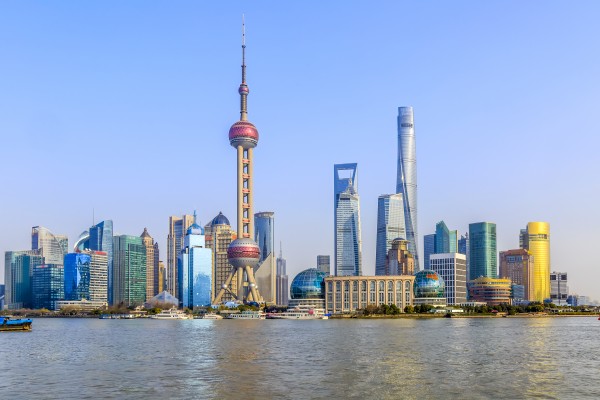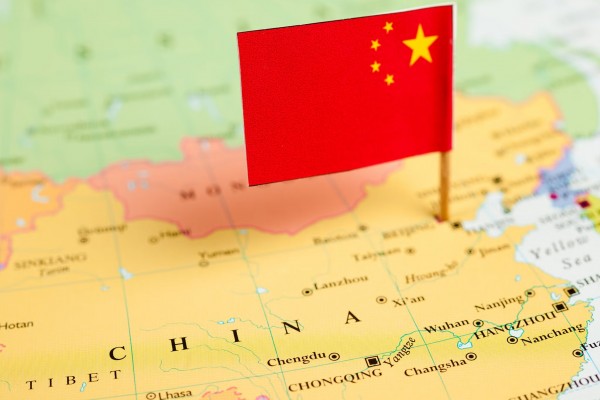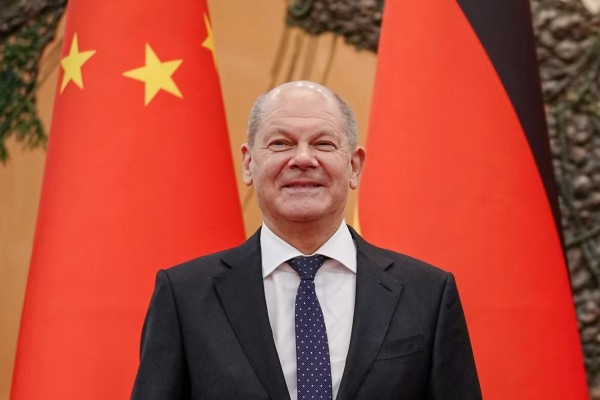Review №1 on Chinese Antitrust News from BRICS Antimonopoly Centre Experts
- Plan for the modernization of market regulation in the 14th Five-Year Plan
- Zhang Gong: Strengthen the fight against monopolies and unfair competition
- Fight against corruption behind monopolies
- Paper on the Healthy Development of the Platform Economy
- Antimonopoly statistics for 2021
- SAMR: Improve Antitrust Enforcement
- Li Keqiang: Strengthen support for SMEs
- Regulation on algorithmic recommendations
- Pony Ma: Tencent can always be replaced
- Strategic cooperation between Meituan and Kuaishou
- The number of mobile applications decreased by 38.5% in 3 years
- Penalties on 13 M&A transactions
- Tencent is China's most valuable private company
- Rumours about tightening investment legislation for BigTech
- Powers of the founder of Bytedance are again reduced
- WeChat disclosed the list of collected personal data
- Further protection of workers on the platforms
- National Informatization Plan for the 14th Five-Year Plan
- China updated Cyber Security Assessment Measures
- 80% of purchases are made through mobile payments
- Regulation of deepfake technologies
- Member of the Academic Council of the BRICS Competition Center Wang Xianlin was among the most active authors
Plan for the modernization of market regulation in the 14th Five-Year Plan
The document was published by the State Council of the People's Republic of China to establish a scientific and highly efficient regulatory system and enhance the comprehensive regulatory capacity. A separate paragraph of the Plan is devoted to the coordination and development of antimonopoly regulation capabilities: it is necessary to improve competition legislation, strengthen mechanisms for assessing the competitive state of the market, strengthen law enforcement in such key areas as platform economy, scientific and technological innovation, information security, etc., develop "targeted and scientific » regulation. The importance of improving the "competitive ecology" in offline and online markets is also emphasized: it is necessary, incl. "guide" orderly competition in the platform economy and increase regulation of new sectors of the economy and new forms of business.
Source: Gov.cn
Zhang Gong: Strengthen the fight against monopolies and unfair competition
In a pre-New Year interview with Xinhua News Agency, SAMR head Zhang Gong emphasized that, following the formation of super-large markets, the relations of cooperation and competition between market entities are undergoing profound changes. Therefore it is necessary to strengthen antitrust regulation. In 2022, attention will be paid to the relationship between development and security, efficiency and justice, vigour and order, domestic and international agendas. The head of the department noted that it is important both to regulate and regulate and promote development. Zhang Gong called the word of 2022 "market entities" that need to be "cultivated, supported, served and directed."
Fight against corruption behind monopolies
At the plenary meeting, during the discussion of the tasks for 2022, the Central Disciplinary Commission of the PRC for the first time separately noted the need to "make efforts to investigate the corrupt practices behind the disorderly expansion of capital and the monopoly of platforms, to cut the link between power and capital." This setting is in line with the SAMR policy: "mark the limits, set the traffic lights" to ensure fair competition in the market.
Source: Weixin
Paper on the Healthy Development of the Platform Economy
On January 19th, the Reform and Development Committee, together with a number of departments, published Some Opinions on Promoting the Regulated, Healthy and Sustainable Development of the Platform Economy. "In general, the overall development trend of China's platform economy is positive, and its role is positive, but it is important to address gaps and shortcomings to
create a regulated and orderly market environment that will encourage innovation and promote fair competition," Committee representatives commented. The Opinions contain 19 items on the development of institutional regulation, increase in control and oversight capacity, improvement of the environment for development (including the open "ecology" of platforms), strengthening of innovation capacity, promotion of economic transformation, and related interim measures.
Source: Cac.gov
Antimonopoly statistics for 2021
SAMR reported on 175 antitrust cases reviewed in 2021. This is 61.5% higher than the same indicator of the previous year, and the amount of fines and penalties amounted to 23.6 billion yuan (≈3.72 billion US dollars). For the first time in 2021, SAMR applied the Antitrust Law to curb the practice of forcing exclusive cooperation on platforms. Many Internet companies received the maximum fine for non-negotiated economic concentration transactions. Records for antitrust fines have renewed industries with a traditionally high percentage of anticompetitive practices: pharmaceuticals and building materials.
SAMR: Improve Antitrust Enforcement
At a press conference of the State Council of the People's Republic of China on January 27th, Deputy Head of the Market Regulator Pu Chun spoke about the agency's actions to activate market entities' "life force" and support their development. He emphasized the importance of regulating the credibility of enterprises: to "nurture" ex-ante creditworthiness, to regulate regulatory actions in the course of violations, and to increase penalties for loss of creditworthiness ex-post. It is also important to strengthen the fundamental role of competition policy, strengthen and develop antitrust enforcement, prevent the indiscriminate expansion of capital, and strictly prohibit advantageous companies from shrinking individual entrepreneurs' living space in order to capture a larger market share.
Li Keqiang: Strengthen support for SMEs
On January 21st, Premier Li Keqiang held a meeting with representatives of education, science, culture, health and sports, where he heard views on the draft government working report (the report will be presented in March at the meeting of the National People's Congress). He noted that in order to promote scientific and technological innovation, the government will not only help research institutions, universities and large companies, but will also provide enhanced support for micro, small and medium-sized businesses, which will allow scientists to achieve more innovative results and apply them more effectively to practice.
Source: Baijiahao
Regulation on algorithmic recommendations
The Cyberspace Administration of China, jointly with SAMR, the Ministry of Industry and Informatization and the Ministry of Public Security, issued the "Regulation on the regulation of algorithmic recommendations in the provision of Internet information services." The document, among other things, prohibits algorithmic recommendation service providers from engaging in illegal activities and distributing illegal information and orders to prevent the dissemination of "harmful" content or data from unverified sources. From now on, providers are required to notify users about the use of algorithms and provide the opportunity to opt-out of personalized content. According to the Regulation, algorithms cannot be used to influence public opinion or carry out anti-competitive practices. The new rules come into force on March 1st, 2022.
Source: SAMR
Pony Ma: Tencent can always be replaced
With reference to the publication LatePost, Chinese media published a speech by the head of Tencent at a meeting of company employees. According to Pony Ma, Tencent is nothing more than an ordinary company in China's period of grandiose social development, the beneficiary of this "wave of national development." It is not a basic service provider and can be replaced at any time. Pony Ma said that Tencent will serve as a "helper" and "connector" and clearly fulfil its role - without flaws, but without excesses.
Source: The paper
Strategic cooperation between Meituan and Kuaishou
Food delivery market leader Meituan will launch its built-in mini-program on Kuaishou's short video platform - Kuaishou's audience will have direct access to the goods and services of Meituan-registered restaurants. Previously, the central government of China required the platforms to ensure mutual openness, i.e. free access to competitors' services on their platforms. The largest players in the digital economy - Tencent, Alibaba, Bytedance, etc. - are already working on the interoperability of payment systems and the ability to share links.
Source: Weixin
The number of mobile applications decreased by 38.5% in 3 years
As of October 2021, the total number of mobile apps in Chinese app stores was 2.78 million, up from 4.52 million in December 2018. The largest reduction came in 2021 when Chinese authorities tightened regulation of digital platforms and introduced new rules to protect personal data.
Source: SCMP
Penalties on 13 M&A transactions
On January 5th, SAMR published administrative penalties for 13 unapproved M&A deals. Most of them related to Internet companies - Alibaba, Tencent and Bilibili, with Tencent being a participant in 9 transactions. For each case, a maximum fine of 500 thousand yuan was applied - the total amount for 13 cases amounted to 10.5 million yuan (≈$1.6 million).
Source: Baijiahao
Tencent – is China's most valuable private company
This was stated by Hurun Research Institute, a compiler of the list of the 500 most valuable private companies in China in 2021, based on their level of capitalization or estimated market value. According to this rating, in 2021, China ranked second after the United States in the world in terms of the number of unicorn companies (301), and the Chinese corporation Bytedance (the developer of TikTok and its Chinese version Douyin) was recognized as the world's largest unicorn (estimated value - $ 350 billion).
Sources: Russian.people, Hurun.net
Rumours about tightening investment legislation for для BigTech
On January 19th, The Wall Street Journal reported that China's Cyberspace Administration had notified some companies of new rules requiring Chinese Internet giants to obtain approval for investment deals. Such a mechanism is designed to prevent even greater growth of fast-growing corporations. The new rules will cover digital companies with 100 million or more users or $1.57 billion in reported revenue in the previous year. However, the Administration, on its official social media account, denied this statement and stressed that it did not issue listing and investment operating rules for Internet companies. The agency urged big business and the public not to disseminate unverified information.
Powers of the founder of Bytedance are again reduced
According to open data, the co-founder of the company Zhang Yiming is no longer the legal representative of any of the affiliated companies of the Bytedance group (the developer of TikTok and its Chinese version Douyin). This step was a continuation of an already launched process - in May last year, Zhang
Yiming stepped down as CEO of the company, and in November, he stepped down from the board of directors. The change of legal representative was called "a normal change in corporate governance." It is also reported that Bytedance disbanded the strategic investment department, which was a key structural unit of the world's largest unicorn - based on the results of accounting and analysis of the company's operations, it was decided to transfer department employees to other divisions.
Sources: Baijiahao
WeChat disclosed the list of collected personal data
WeChat developers have presented an updated version of the application: it contains advanced settings to enhance the protection of personal secrets. Users will have access to a list of personal data collected and a list of information shared with third parties. In the first list, you can see the user's basic data, associated devices, contacts and data generated during use, and other information about the collection of personal data.
Source: Baijiahao
Further protection of workers on the platforms
The Ministry of Human Resources and Welfare, together with other responsible departments, held an administrative workshop with 11 leading digital platforms, including Alibaba, Tencent, DiDi, Meituan, etc. At the meeting, the organizers confirmed that the platforms have successfully implemented the recently adopted rights and interests of workers for new forms of employment”. Based on the results achieved, they called on Internet companies to deeply study the needs of workers and engage in further improvement of algorithms and rules.
Source: Baijiahao
National Informatization Plan for the 14th Five-Year Plan
In the 14th Five-Year Plan, informatization is moving to the stage of accelerated digitalized development and building a "digital" China. According to Chinese President Xi Jinping, modernization is impossible without informatization. The document is based on economic and social development goals in the relevant period.
China updated Cyber Security Assessment Measures
The updated document was published by the Chinese Cyberspace Administration on January 4th and will come into effect on February 15th. According to the updated text, operators of online platforms are required to undergo a cybersecurity check if their data processing activities may affect national security - these are, for example, operators of online platforms with access to personal data of more than 1 million users who wish to enter a foreign exchange.
Source: Cac.gov
80% of purchases are made through mobile payments
According to People's Daily, citing a survey conducted by the national payment system China UnionPay (more than 90,000 respondents nationwide), mobile payments are becoming the most popular payment solution for Chinese citizens - they account for more than 80% of all payments made by citizens of large cities. , whose average monthly expenses are more than 5300 yuan. At the same time, for residents of small and medium-sized cities of less importance with expenses of 3,200 yuan, this figure reached 90%.
Source: Russian.people
Regulation of deepfake technologies
As part of the strengthening of the fight against deepfakes, the Cyberspace Administration of China published for public consultation a draft "Deep synthesis regulation rules for the provision of information services on the Internet." Service providers that change biometric data (face, voice) are required to strengthen information control, guarantee the legality and reasonable degree of data processing, and also obtain separate consent for their editing. Activities related to deep synthesis must "meet socialist values and correspond to the right political direction."
Source: News.cctv
Member of the Academic Council of the BRICS Competition Center Wang Xianlin was among the most active authors
Distinguished Professor at Shanghai Transport University and Advisory Expert of the Antimonopoly Commission of the State Council Wang Xianlin, who is on the Academic Council of the BRICS Competition Center, ranked first in the top 20 most active authors of scientific articles on antitrust topics of all time. The statistics were provided by Southern Metropolis based on data from the Chinese CNKI database. CNKI has 147 articles by Wang Xianlin. It also ranks third in the same ranking for 2021 (11 articles).
In total, 31,879 articles on antitrust law are registered in the database - more than 1,700 of them were published in 2021, which is the maximum value in the last seven years. The most popular words were "antitrust law", "platform economy", "digital economy", "economic concentration" and "internet platforms". According to Guangming Daily, one of China's largest media outlets, "platform economy antitrust law" was also ranked in China's top 10 scientific topics for 2021.




